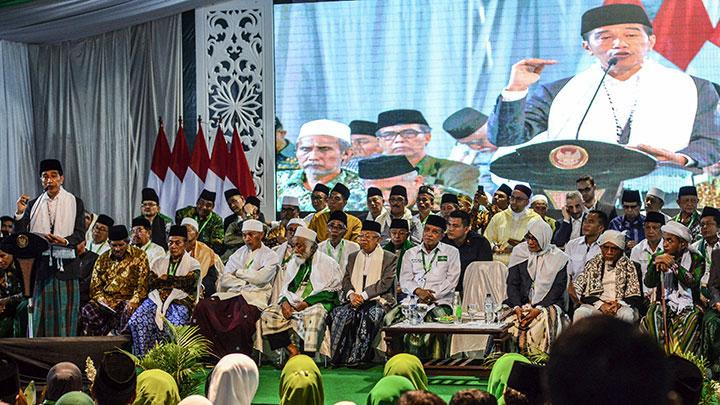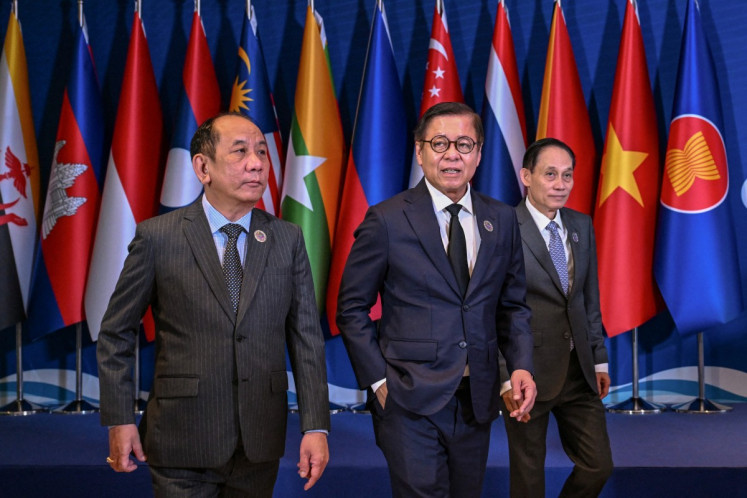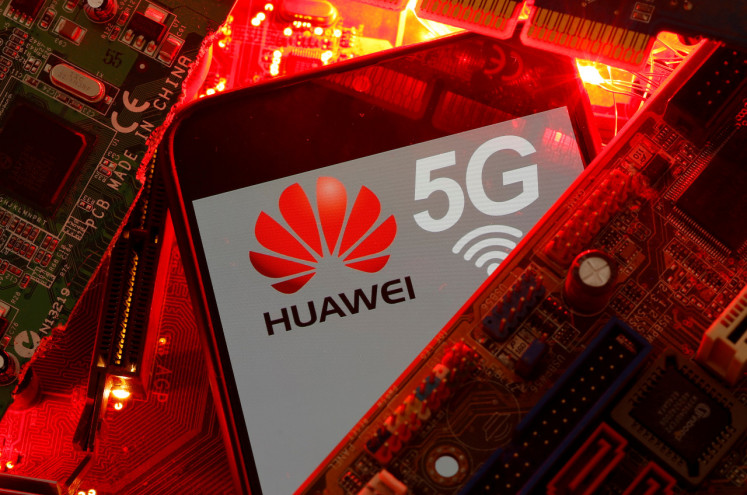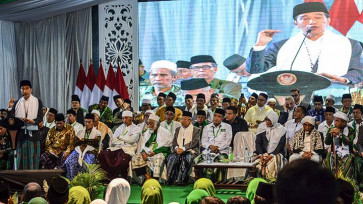Popular Reads
Top Results
Can't find what you're looking for?
View all search resultsPopular Reads
Top Results
Can't find what you're looking for?
View all search resultsMa’ruf and NU factor
During the campaign period, the rhetoric that NU members should vote for Jokowi because his running mate was a former NU supreme leader was frequently uttered by NU leaders both on the central board and in the NU’s vast network of pesantren (Islamic boarding schools).
Change text size
Gift Premium Articles
to Anyone
A
hmad Najib Burhani’s piece in The Jakarta Post (May 9) on the Ma’ruf Amin factor in Joko “Jokowi” Widodo’s reelection made two points worth reexamining: that Ma’ruf failed “to boost Jokowi’s electability in Muslim majority regions”, and that Jokowi’s tight alliance with a particular religious group, in this case Nahdlatul Ulama (NU), is prone to slipping into “practicing favoritism or even authoritarianism”. The former demands critical reviewing, while the latter needs caveats.
Najib’s first point was in response to claims that Ma’ruf was appointed as Jokowi’s vice-presidential candidate to shield the incumbent against sectarian attacks and to mobilize support from NU members. Najib’s refutation of these claims were a bit surprising, given that he himself, in his past commentary on the same issue (published on the website of the Institute of Southeast Asian Studies), was one of the few analysts who argued that Ma’ruf’s main role was that of a shield rather than a vote-getter. His past view was actually more accurate than his latest.
Indeed, Ma’ruf in Banten couldn’t replicate the Jusuf Kalla factor in South Sulawesi where Jokowi won in 2014. The current VP also failed to boost Jokowi’s electability in West Java. Yet in light of the “shield” perspective of reading the election results, the question shouldn’t be why Jokowi didn’t gain more votes, but rather why Jokowi didn’t lose a significant amount of votes he had five years ago in West Java and other vote bases of his rival Prabowo Subianto (which Najib referred to regarding the predominantly NU island of Madura, East Java).
More importantly, as national electoral mapping shows, Jokowi obtained a massive increase of more than 10 percent in both East and Central Java, including Yogyakarta. Note that East and Central Java make up nearly a third of the total voters. Jokowi’s vote gain in these regions, plus another massive increase from non-Muslim voters, compensated his defeat in South Sulawesi and his bigger loss in Prabowo’s vote bases in Sumatra.
At the national level, electoral support for Jokowi from NU members actually increased. Indikator Politik’s exit polls in 2014 and 2019 show that, while NU voters were relatively evenly distributed between the two candidates five years ago, most NU members voted for Jokowi this year, with a margin of 12 percent. This is a massive increase, and the Ma’ruf factor should be strongly suspected to have come into play.
During the campaign period, the rhetoric that NU members should vote for Jokowi because his running mate was a former NU supreme leader was frequently uttered by NU leaders both on the central board and in the NU’s vast network of pesantren (Islamic boarding schools). At the grassroots level, as I encountered during my fieldwork at large pesantren in East and Central Java, that rhetoric was prominent. Key NU national and pesantren leaders who had supported Prabowo in 2014 shifted to Jokowi in 2019, with Ma’ruf’s VP candidacy being one of the main reasons. The real count results on the General Elections Commission website, up to the local level, show that the shift did come into effect (as I wrote in my latest piece on the New Mandala website).
So, while more Muslims voted for Prabowo, with a tiny margin (as they did in 2014), the Ma’ruf factor did massively boost Jokowi’s electability among NU voters and — again in light of the “shield” perspective — arguably prevented Jokowi from losing more among Muslim voters.


















